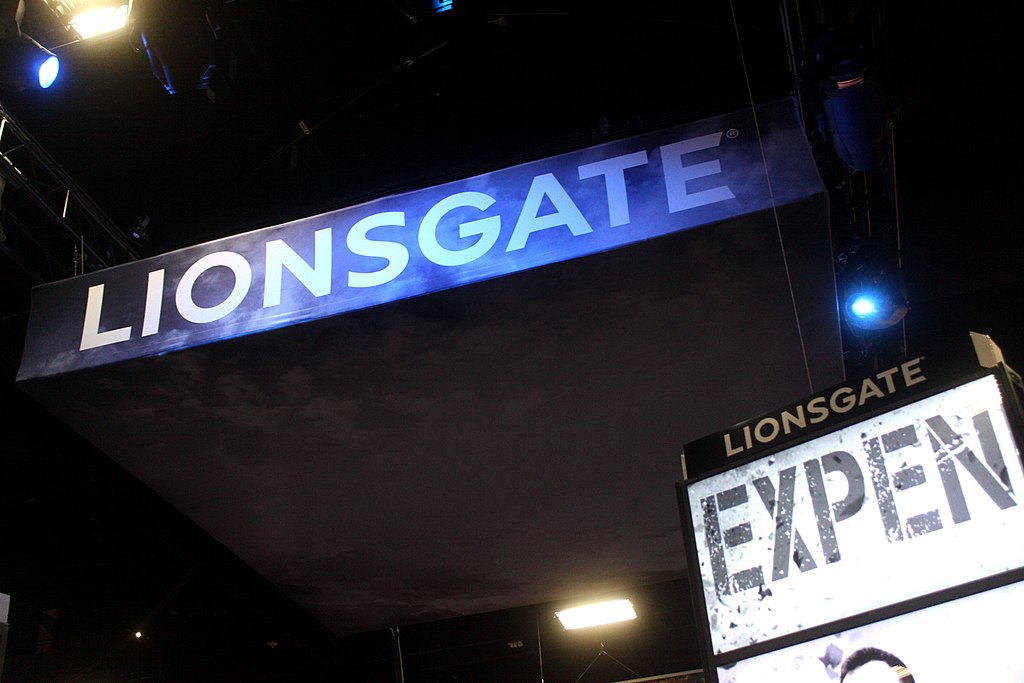Activist investor Anson Funds Management has made headlines by acquiring a stake in Lionsgate Studios, urging the embattled media giant to explore a potential sale. According to a report from Bloomberg News, the firm is pressuring Lionsgate to evaluate strategic alternatives, citing undervaluation and disappointing box office performance, particularly the recent flop of Megalopolis.
The move comes as Lionsgate Studios continues to face challenges, including corporate governance concerns and its ongoing separation from Starz, the company’s cable and streaming service. Anson’s intervention highlights growing discontent among investors and raises questions about the studio’s future direction.
Anson's Push for Strategic Changes
Sagar Gupta, Anson’s head of activism, outlined the firm’s case for action. He argued that Lionsgate, the studio behind iconic franchises like The Hunger Games and John Wick, remains undervalued in today’s competitive media landscape. Gupta suggested that once Lionsgate finalizes its separation from Starz, the company should seriously consider a sale or divestitures of specific divisions, including its unscripted television and 3 Arts businesses.
Additionally, Anson has proposed alternative revenue streams to bolster the studio’s financial performance. Ideas include deeper forays into merchandising, Broadway adaptations, and more aggressive event-based revenue opportunities. The firm also criticized Lionsgate’s financial disclosures, calling for greater transparency to attract investor confidence.
Gupta’s comments signal Anson’s intent to reshape the studio’s trajectory, leveraging its position to attract potential buyers. Analysts believe Lionsgate could appeal to traditional media giants, digital streaming platforms, or even technology firms venturing into artificial intelligence and content creation.
Investor Pressure Intensifies Amid Box Office Struggles
Lionsgate’s underperformance at the box office has only added fuel to the fire. The disastrous reception of Megalopolis not only dented the company’s financials but also eroded investor sentiment. With competition from streaming services and tech-backed studios escalating, Lionsgate finds itself at a critical crossroads.
“Lionsgate has legacy assets, but it’s not immune to the new wave of content disruption,” said one industry analyst. “The push from Anson is a wake-up call.”
Public Reaction: Social Media Divided Over Studio’s Future
The news of Anson’s intervention has sparked a fiery debate online, with fans, critics, and industry insiders weighing in on the studio’s potential sale.
- @FilmFanatic23: “Selling Lionsgate? That’s insane. John Wick alone is worth keeping this studio alive!”
- @InvestorBuzz: “Anson is spot-on. Lionsgate needs to clean house and innovate—or sell before it’s too late.”
- @CinephileDreams: “The flop of Megalopolis was embarrassing. Maybe new leadership could save what’s left.”
- @StreamingGuru: “If a tech company buys Lionsgate, expect the next Hunger Games to be an AI experiment!”
- @HollywoodInsider: “This is a classic case of Wall Street meddling with art. Let creators lead the way!”
- @PopCultureQueen: “Can’t believe Lionsgate is in this much trouble. Feels like the end of an era.”
Challenges Ahead for Lionsgate
While the possibility of a sale might excite some investors, critics argue that breaking up Lionsgate could weaken its legacy as a creative powerhouse. Divesting key businesses could dilute the brand’s strength and leave it vulnerable in an already saturated market. On the other hand, a sale or merger could inject much-needed resources to reinvigorate its content strategy.



 Trump’s Inflation Claims Clash With Voters’ Cost-of-Living Reality
Trump’s Inflation Claims Clash With Voters’ Cost-of-Living Reality  Japan Economy Poised for Q4 2025 Growth as Investment and Consumption Hold Firm
Japan Economy Poised for Q4 2025 Growth as Investment and Consumption Hold Firm  Gold Prices Slide Below $5,000 as Strong Dollar and Central Bank Outlook Weigh on Metals
Gold Prices Slide Below $5,000 as Strong Dollar and Central Bank Outlook Weigh on Metals  OpenAI Expands Enterprise AI Strategy With Major Hiring Push Ahead of New Business Offering
OpenAI Expands Enterprise AI Strategy With Major Hiring Push Ahead of New Business Offering  Thailand Inflation Remains Negative for 10th Straight Month in January
Thailand Inflation Remains Negative for 10th Straight Month in January  Nasdaq Proposes Fast-Track Rule to Accelerate Index Inclusion for Major New Listings
Nasdaq Proposes Fast-Track Rule to Accelerate Index Inclusion for Major New Listings  Trump Endorses Japan’s Sanae Takaichi Ahead of Crucial Election Amid Market and China Tensions
Trump Endorses Japan’s Sanae Takaichi Ahead of Crucial Election Amid Market and China Tensions  Dow Hits 50,000 as U.S. Stocks Stage Strong Rebound Amid AI Volatility
Dow Hits 50,000 as U.S. Stocks Stage Strong Rebound Amid AI Volatility  Nikkei 225 Hits Record High Above 56,000 After Japan Election Boosts Market Confidence
Nikkei 225 Hits Record High Above 56,000 After Japan Election Boosts Market Confidence  American Airlines CEO to Meet Pilots Union Amid Storm Response and Financial Concerns
American Airlines CEO to Meet Pilots Union Amid Storm Response and Financial Concerns  South Africa Eyes ECB Repo Lines as Inflation Eases and Rate Cuts Loom
South Africa Eyes ECB Repo Lines as Inflation Eases and Rate Cuts Loom  Prudential Financial Reports Higher Q4 Profit on Strong Underwriting and Investment Gains
Prudential Financial Reports Higher Q4 Profit on Strong Underwriting and Investment Gains  Gold and Silver Prices Rebound After Volatile Week Triggered by Fed Nomination
Gold and Silver Prices Rebound After Volatile Week Triggered by Fed Nomination  Anta Sports Expands Global Footprint With Strategic Puma Stake
Anta Sports Expands Global Footprint With Strategic Puma Stake  Nvidia CEO Jensen Huang Says AI Investment Boom Is Just Beginning as NVDA Shares Surge
Nvidia CEO Jensen Huang Says AI Investment Boom Is Just Beginning as NVDA Shares Surge  Nvidia, ByteDance, and the U.S.-China AI Chip Standoff Over H200 Exports
Nvidia, ByteDance, and the U.S.-China AI Chip Standoff Over H200 Exports  Instagram Outage Disrupts Thousands of U.S. Users
Instagram Outage Disrupts Thousands of U.S. Users 































